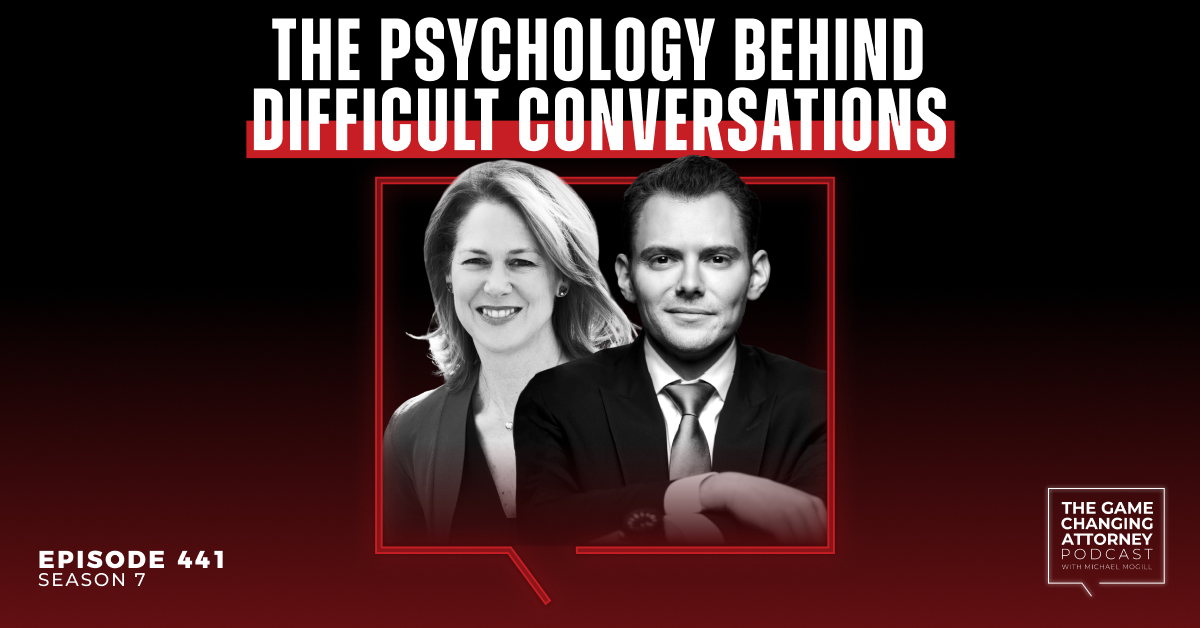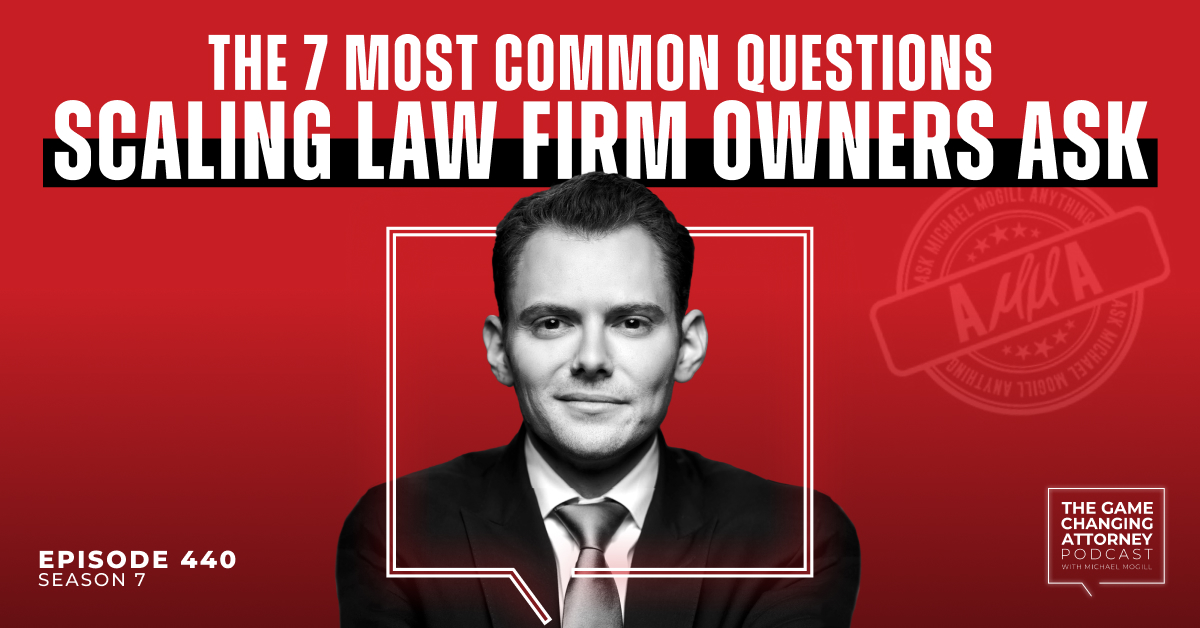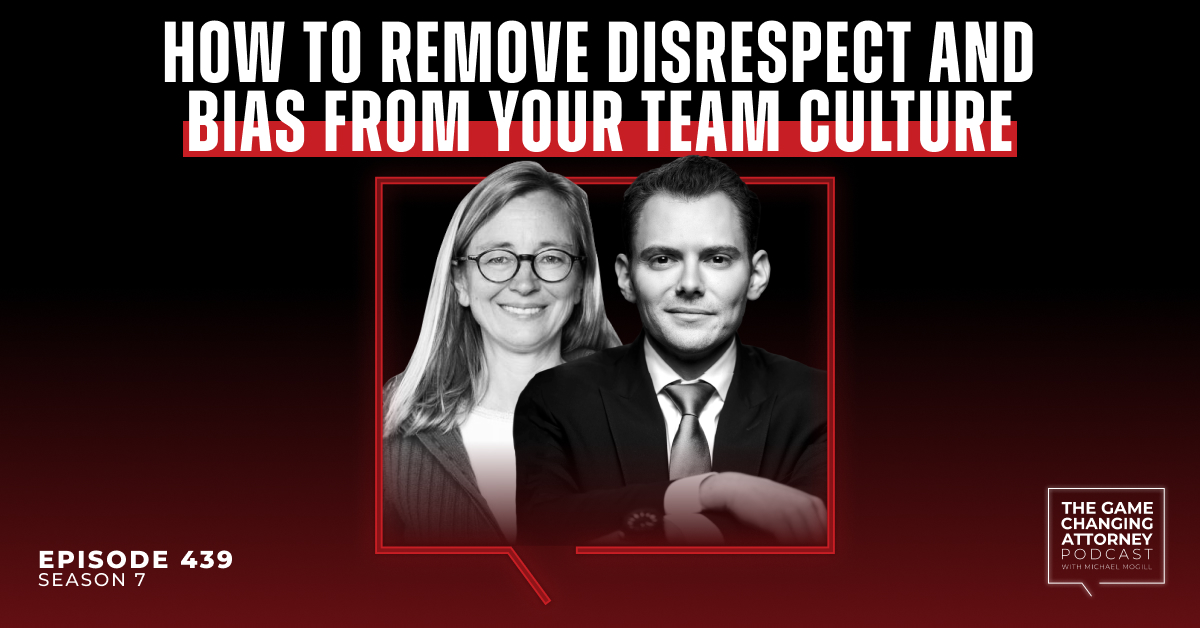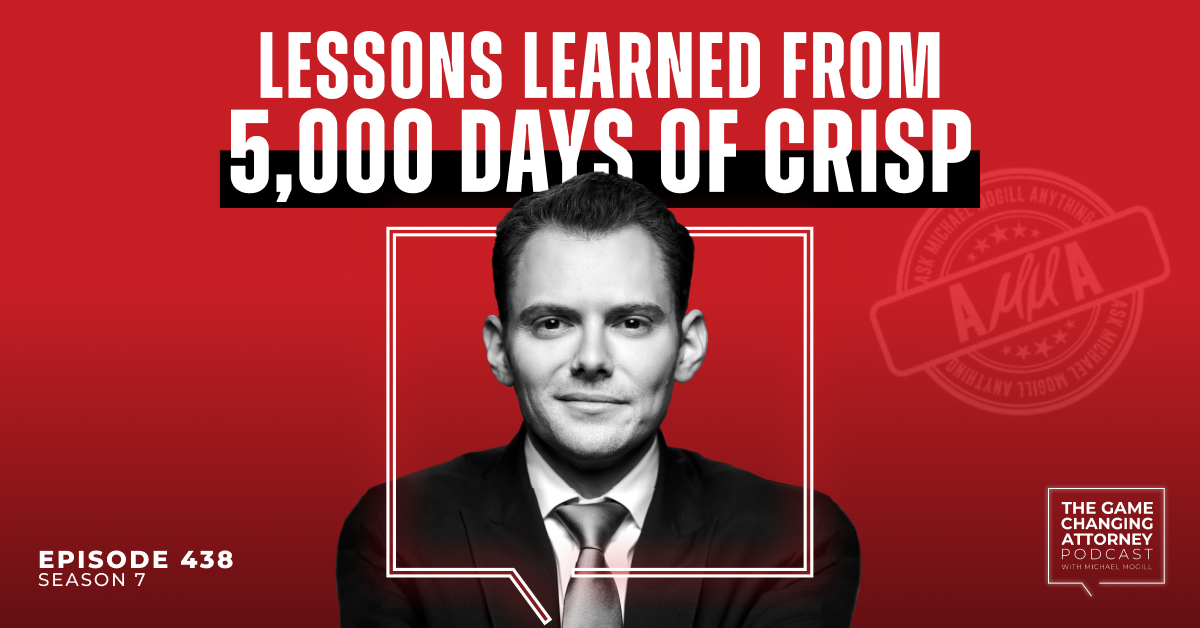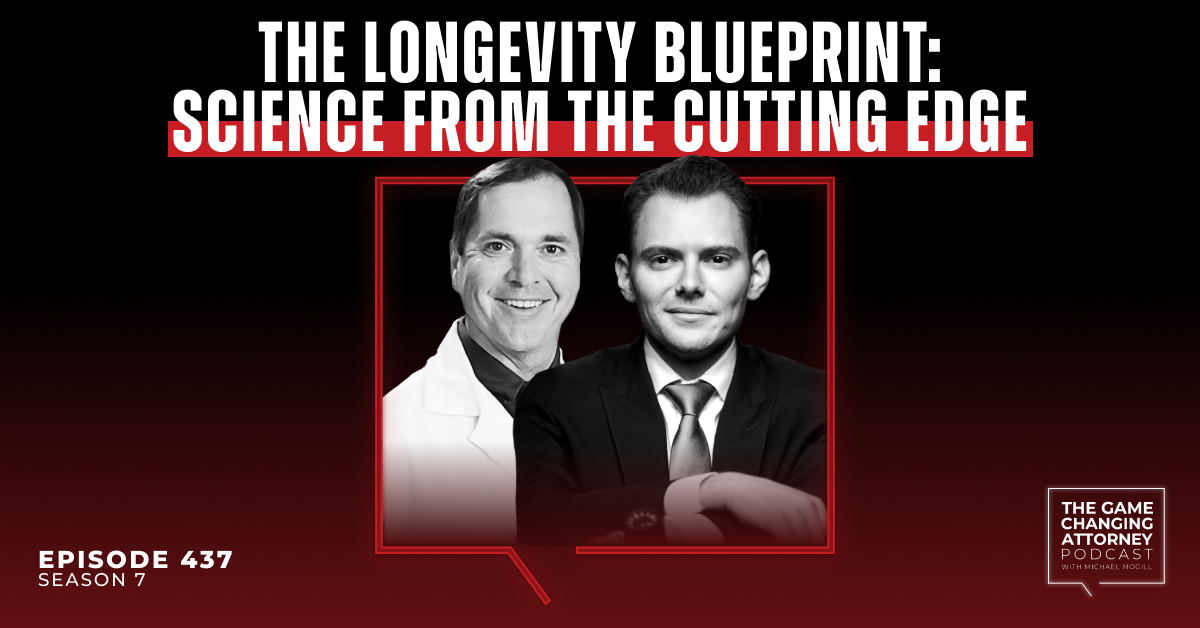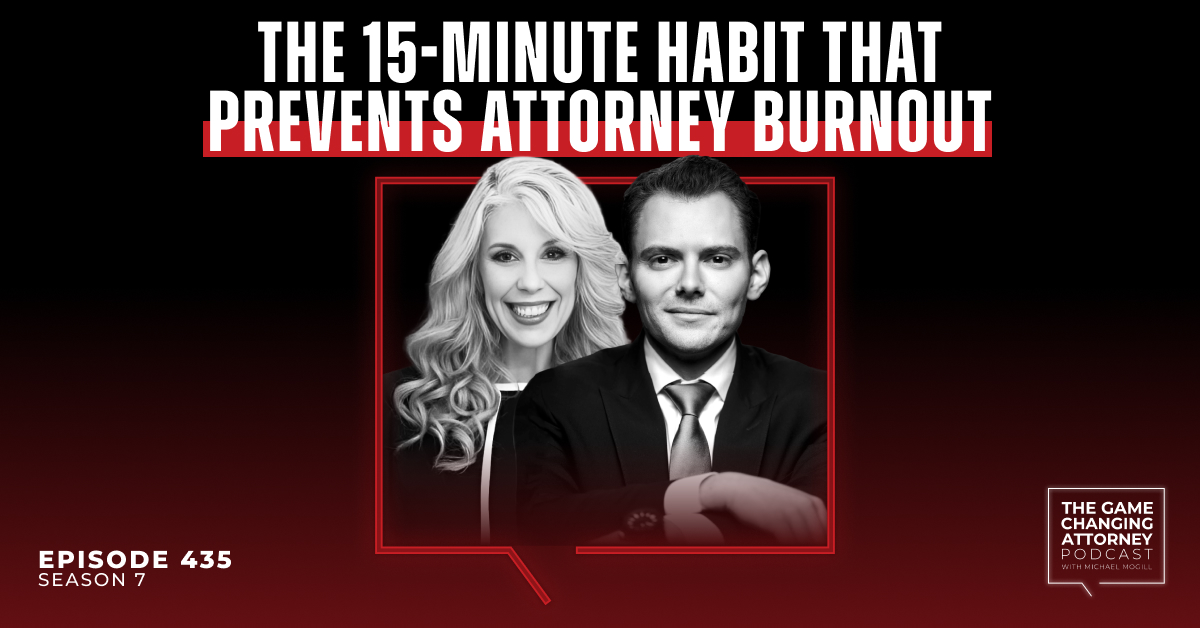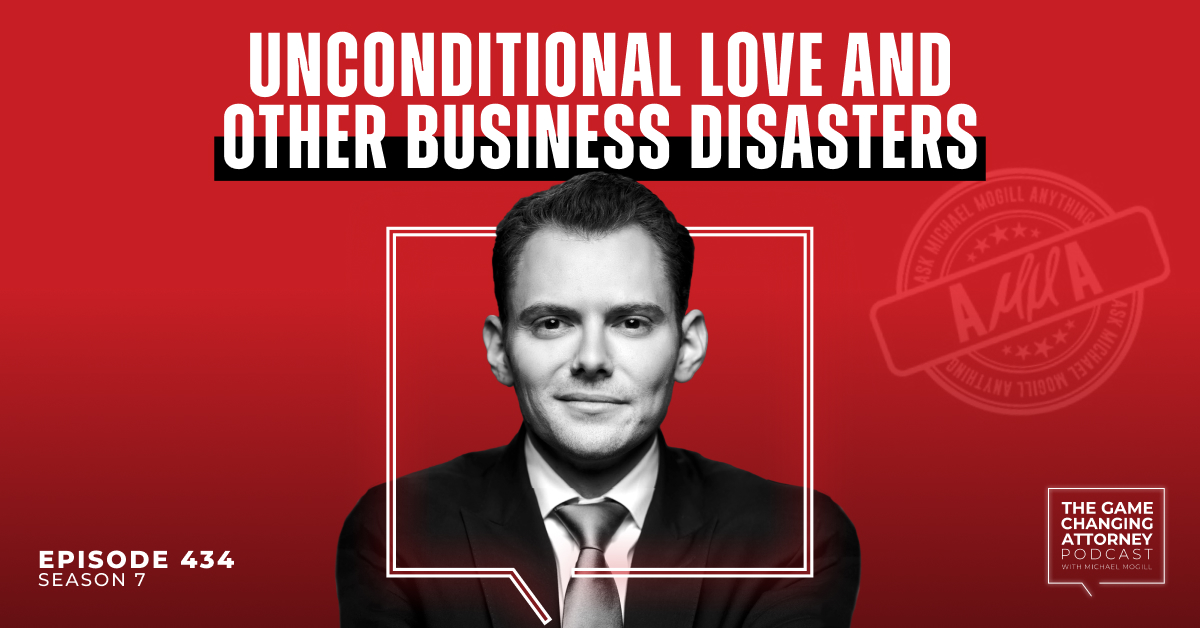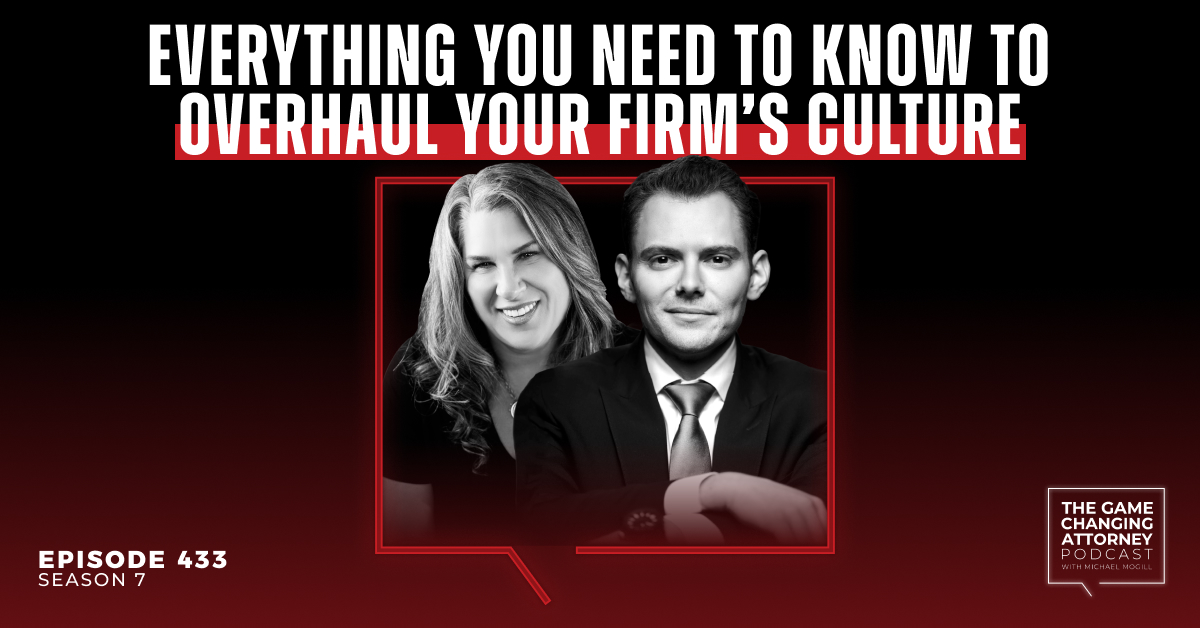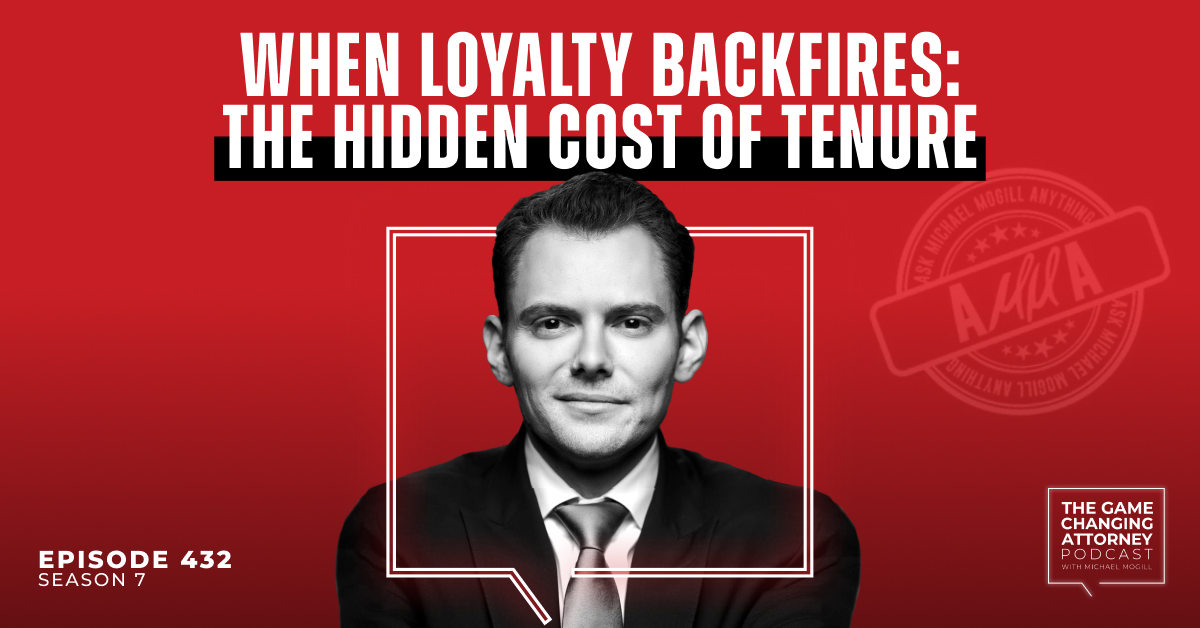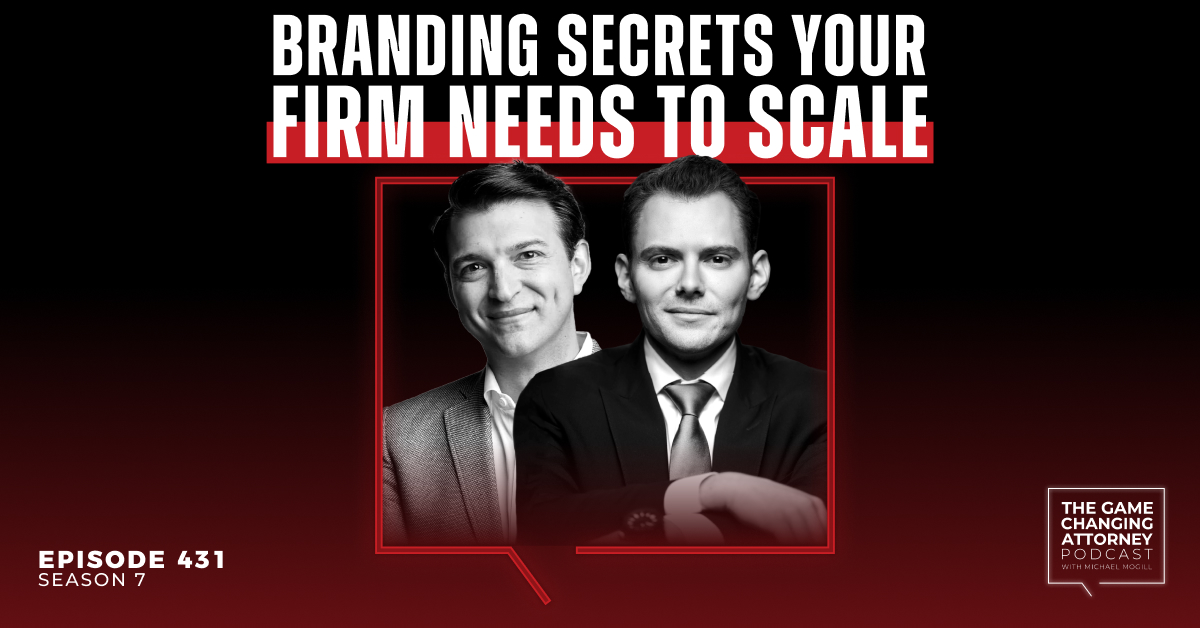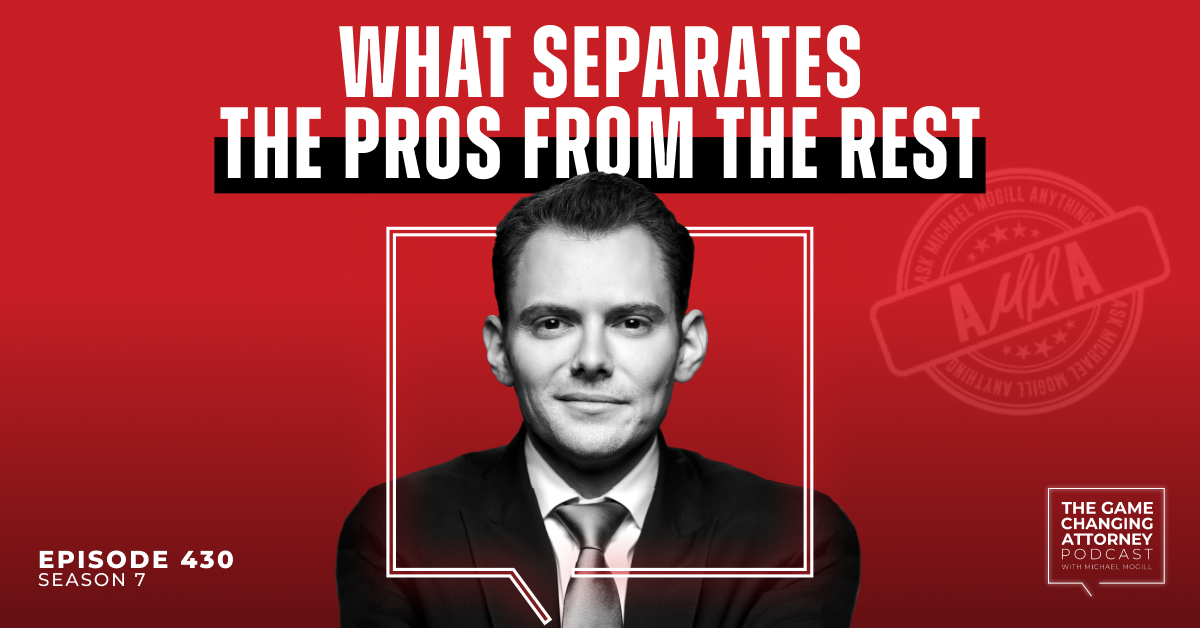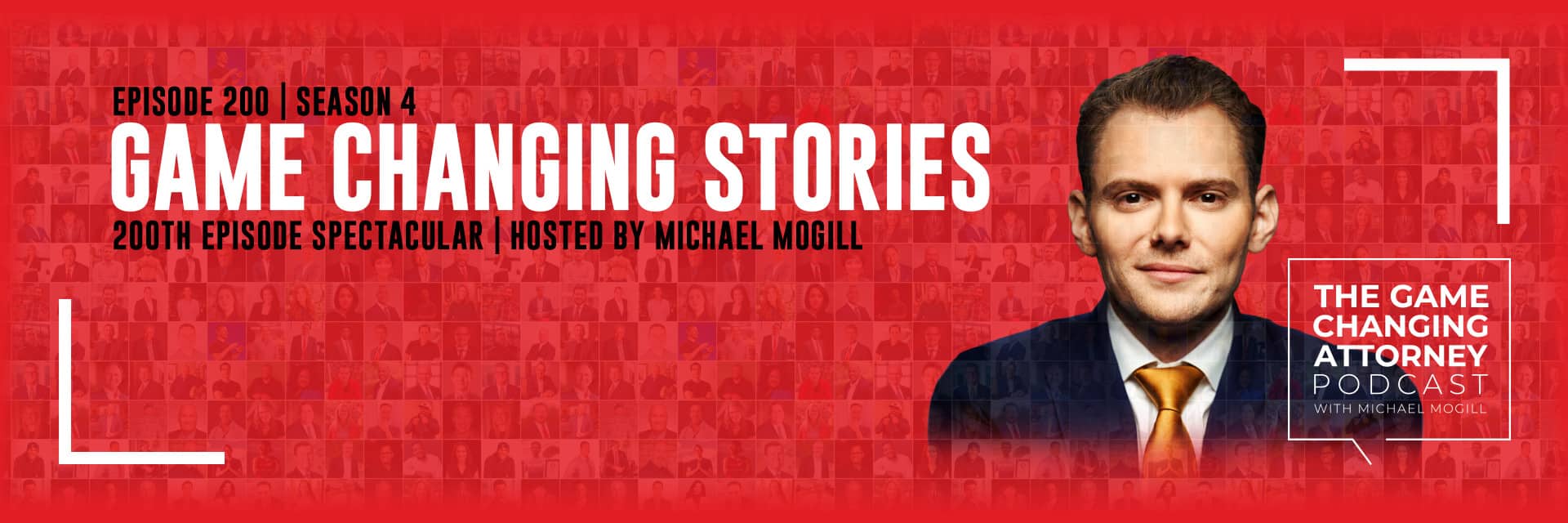
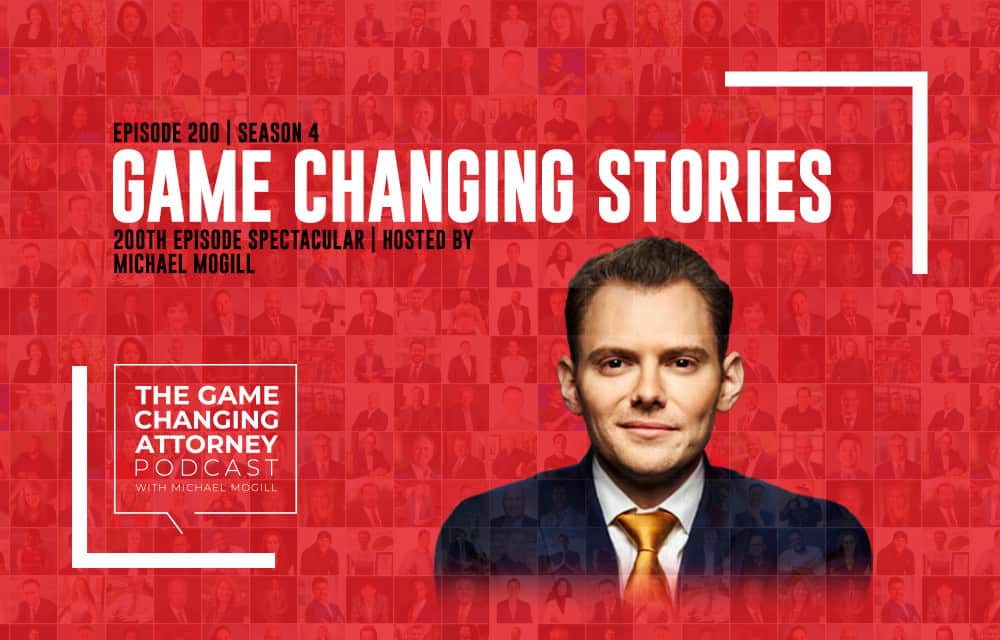
Episode 200 — Game Changing Stories: 200th Episode Spectacular
From Episode 1 to 199, The Game Changing Attorney Podcast has featured market leaders, innovative thinkers, and iconic figures from the legal industry and beyond.
This special 200th Episode Spectacular features some of our most memorable guests, favorite behind-the-scenes stories, and most game changing moments so far.
Enjoy conversations with:
- John Morgan: Founder of Morgan & Morgan
- Chris Voss: Former Lead FBI International Hostage Negotiator
- Jessica Mogill: Crisp Head of Coaching Strategy
- Mark Manson: Best-Selling Author of The Subtle Art of Not Giving a F*ck
- Andre Norman: Author & Founder of The Academy of Hope
- Jason Hehir: Award-Winning Director, Producer, & Screenwriter
- Jan Dils: Founder of Jan Dils, Attorneys at Law
- David Goggins: Retired Navy SEAL & Best-Selling Author
- Bill Perkins: Hedge Fund Manager & Best-Selling Author
- Alex Hormozi: Founder & Managing Partner of Acquisition.com
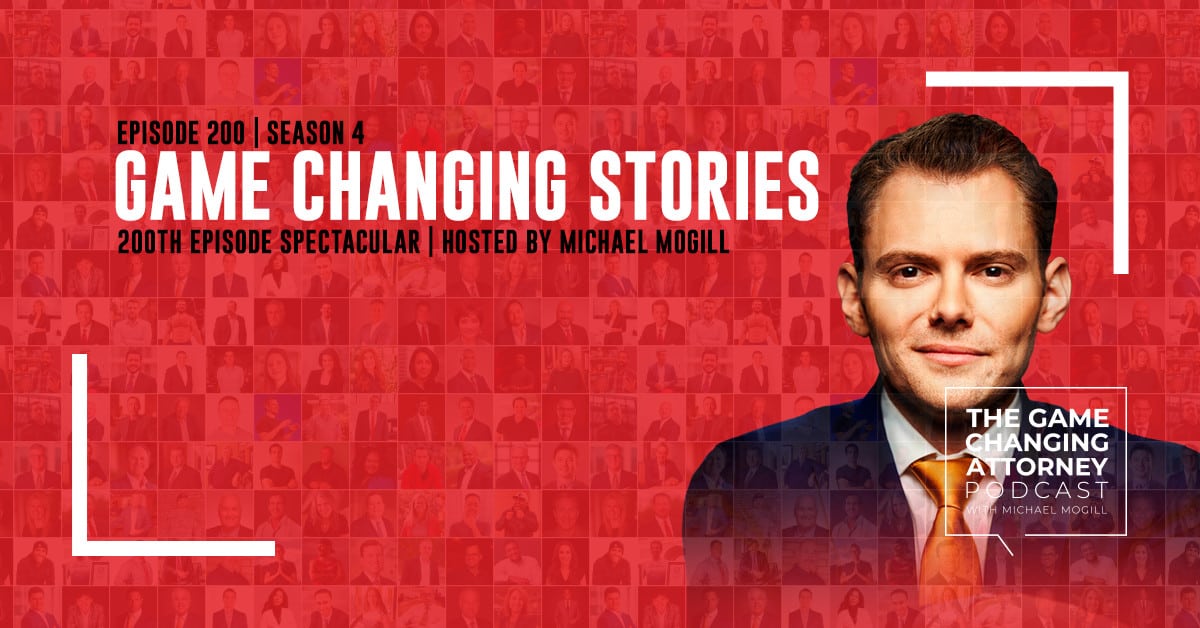
Listen & Subscribe
Show Notes:
John Morgan
Lions and sloths. “In the jungle today, a lion will be born. And that lion is the king of the jungle, just because he or she is a lion. The same day, a sloth will be born. Same day, same jungle, same deal. That sloth is so f*cked he can’t even describe it. All he can do is barely muster up enough energy to come down the tree, grab some berries, go to the bathroom, go back up, and go to sleep.”
Chris Voss
Get curious with the mindset of discovery. “The mindset of discovery is actually a hack for you. It’s basically a positive frame of mind, and it’s curious. You can actually take in more information. You see things faster when you’re in that mindset. You pull in more data. Your pattern recognition increases — all the things that go to higher mental performance. So first of all, if you have a mindset of discovery you’re going to be smarter. Probably at least 31% smarter, which is enough of an edge that if you’re interested in edges, you’re going to want it.”
Jessica Mogill
The right kind of right-hand woman. “You have to find someone who is okay challenging you. I think that is a big thing that we’ve seen with a lot of people who come in from a leadership perspective. It’s very easy for a visionary to say, ‘I’ve got all these ideas. Let’s run with them.’ But I would say one of my biggest strengths is actually being able to poke holes in things and being able to say, ‘No, this is not good,’ or, ‘What if this happens?’ I know all you visionaries are probably thinking, ‘No, those people are going to slow me down. Those people are going to be so defensive, and they’re not going to want to make any progress’ — but it is not defensiveness. I just look at every scenario that could go wrong before we implement. I’m not saying don’t do it. I just want to have every potential cage — a barrier everywhere to protect it.”
Mark Manson
What is worth caring about? “What ‘not giving a f*ck’ is, or essentially the question of, ‘What do you give a f*ck about?’ is a question of values and priorities. I strongly believe that the core question of our day and age is, ‘What is worth caring about?’ or, ‘What is worth focusing on?’ We live in an age where we are constantly overwhelmed with information and opportunity, and so the biggest struggle for most of us is to figure out where to delegate our limited time and attention. What is worth focusing on? What is worth caring about? It’s a really, really hard thing to figure out. I think five years ago, when the book came out, people were very unaware that struggle was going on within themselves. I think today people are generally aware that it is a struggle, but as a culture we still haven’t really figured out how to tackle it.”
Andre Norman
Defining true success. “Success is not a success without a successor. So if you’re not helping someone else become successful, you’re not successful either — you’re just lucky. My goal is to help people be successful. Whatever they hope to accomplish isn’t relevant to me; I just want them to get there. Stay alive and get there.”
Jason Hehir
A gift and a curse. “These men and women who are icons to us are much like sharks — they’re always looking for what’s next and can never sit down and reflect. I’m not sure that that’s necessarily a good thing. It’s a gift and a curse; it’s a gift because it’s gotten them to where they are now, but it’s a curse because you want these people to have the pleasure of sitting back and reflecting on what they’ve done to reach this very moment. You want them to take pride in that and offer up wisdom as to how they made that happen.”
Jan Dils
The power of advertising. “My dad was big on advertising his car dealership, so I saw the value in doing it. I was familiar with the traditional advertisers, such as the television, newspapers, and radio. I purchased the backside of the phonebook back in ‘94, and after that, I cut my first commercial. That’s when I truly realized the true power of advertising.”
David Goggins
Your own worst enemy — and your own hero. “I was the one holding me back. I was the one looking for the scapegoat. I was the one looking for all these ways to tell myself it was going to be okay. I was hoping my dad was going to give me that confirmation and he was a loser himself. But at the end of the day when I left my home, I realized, ‘Well sh*t man, this is all me. I’m the loser. My dad’s f*cked up. My mom’s f*cked up. The people around me are f*cked up. They’re not going to save me.’ I needed to save myself. So that’s when all that reality hit me. When I went to Buffalo to see my dad, the entire drive home I told myself that the rest of my life is going to suck. There’s no way around it. But it’s not going to suck because of me being a loser, but because of me finally being a winner. And winning is not easy, my friend.”
Bill Perkins
Earn memory dividends. “Your fulfillment is not only something that you got to experience as an event, but it also becomes what I call a memory dividend. Every time you recall it and think about it or discuss it makes you experience it all over again. Think of it this way: When you go out to dinner with new people, what do you talk about? Sure, you talk about ideas and concepts that haven’t happened, but a lot of times you talk about things that have happened and then you both share in that moment together, and that creates a new moment that you can look back on down the road.”
Alex Hormozi
The one trait all great leaders have in common. “If you have humility, you can do a lot. If somebody’s humbled and they can accept feedback, then they can change. It’s very difficult to do, because if someone doesn’t have humility, then it means that whoever they are on day one has to be the person that they need to be at day 1000. If they can’t admit there’s a deficit that they can’t improve, they’re already screwed. So humility is by far the biggest thing when it comes to being a successful founder. Beyond that, they have to have drive and determination — their fuel.”
RESOURCES & REFERENCES
Episode 1 — John Morgan
Episode 5 — Chris Voss
Episode 47 — Jessica Mogill
Episode 72 — Mark Manson
Episode 98 — Andre Norman
Episode 105 — Jason Hehir
Episode 126 — Jan Dils
Episode 141 — David Goggins
Episode 151 — Bill Perkins
Episode 158 — Alex Hormozi
Connect with Michael
- Text directly at 404-531-7691
